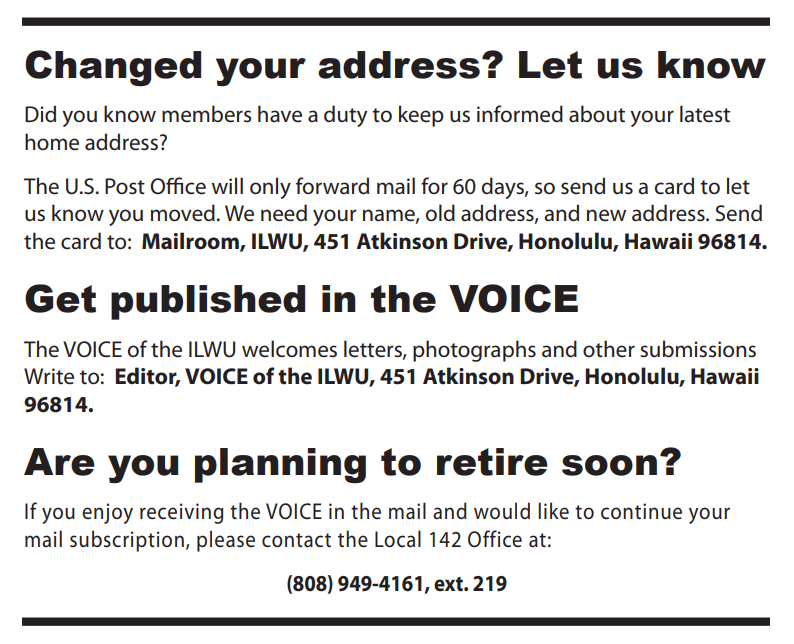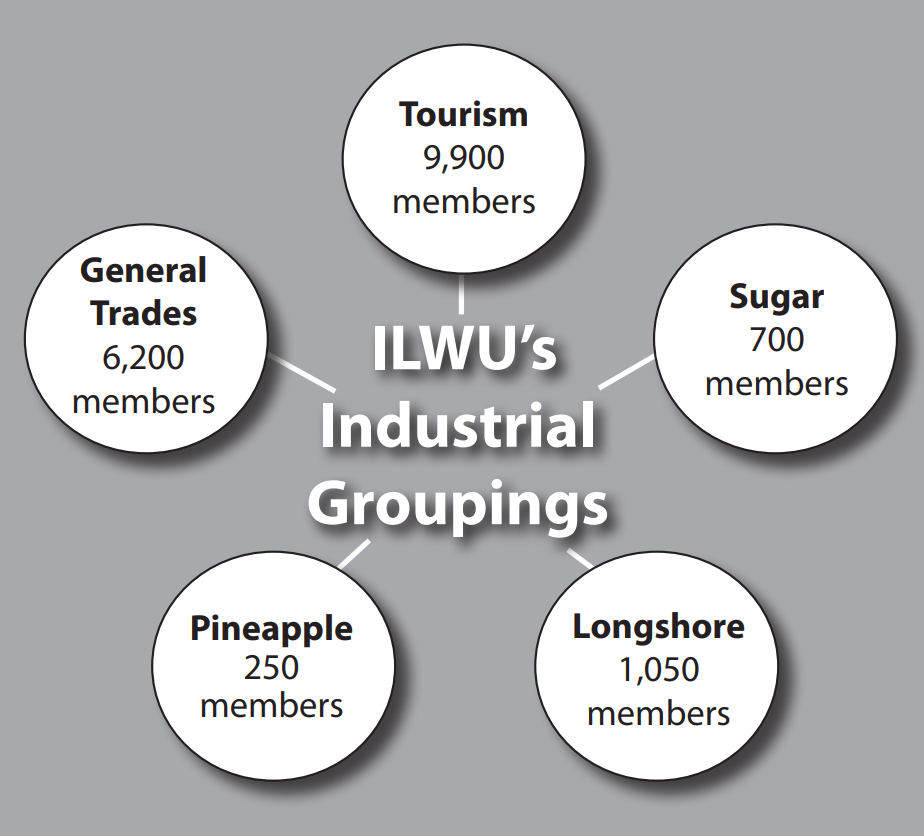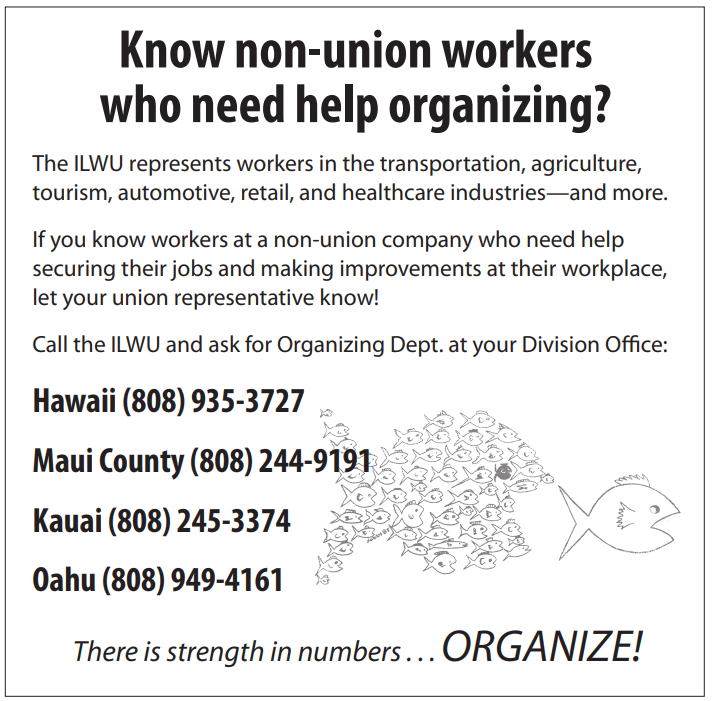A guide to what every member should know
As a member of ILWU Local 142, you are a part of a long and proud tradition where workers join or form organizations for their mutual benefit and to promote fairness and justice on the job. These organizations are called labor unions, trade unions, or just unions.
In Hawaii, one out of every four workers is a member of a labor union. The most common kind of union is based on the job the worker does. For example, there are unions of airline pilots, firefighters, bricklayers, teachers, nurses, and only workers who do those jobs are members of those unions.
Another kind of union is based on an entire industry—such as hotel workers, government employees, or postal workers. A third kind of union, like the ILWU, organizes and includes workers from many different industries. This kind of unionism brings the highest level of unity to workers.
There are 18,000 ILWU members on all major islands in Hawaii, which makes the ILWU one of the largest unions in Hawaii. ILWU members work in every major industry including: tourism, longshore, sugar, pineapple, manufacturing, transportation, and hospitals. ILWU members hold diverse jobs—they are mechanics, drivers, cooks, hotel housekeepers, store cashiers, computer clerks, hospital technicians, and more.
Dignity and respect in unions
Believe it or not, most workers organize into unions because of bad working conditions and poor treatment by management and not for higher wages and benefits. When workers are organized into unions, they gain the power to change their working conditions and demand respect and fair treatment from management.
With a union, workers have job security and can no longer be fired, transferred, or demoted at the whim of their bosses.
In the United States, workers are hired “at-will.” This is a term that means workers are not slaves and can quit their job at their choice—or at their will. It also means an employer can fire a worker for any or no reason—or at the employer’s will.
U.S. and Hawaii law only protects a worker from being fired for an illegal reason—such as discrimination by race, sex, age, religion, sexual orientation, ancestry, disability, marital status, or arrest and court record. However, unionized workers have a written contract which gives them additional protection against unjust or unfair firing or treatment on the job.
With a union, workers gain the power to meet with management on equal terms and bargain collectively to improve their wages and benefits.
Union workers no longer have to go to their boss as individuals and beg for an increase in wages. With a union, employees have a say on working conditions because management is required to negotiate with them on any changes in the terms and conditions of employment. With no union, management can take back benefits and change things on the job at any time with no notice and no need to consult with workers.
Unions give workers dignity, respect, and a voice on the job. Many workers consider these to be the most valuable benefit of having a union.



